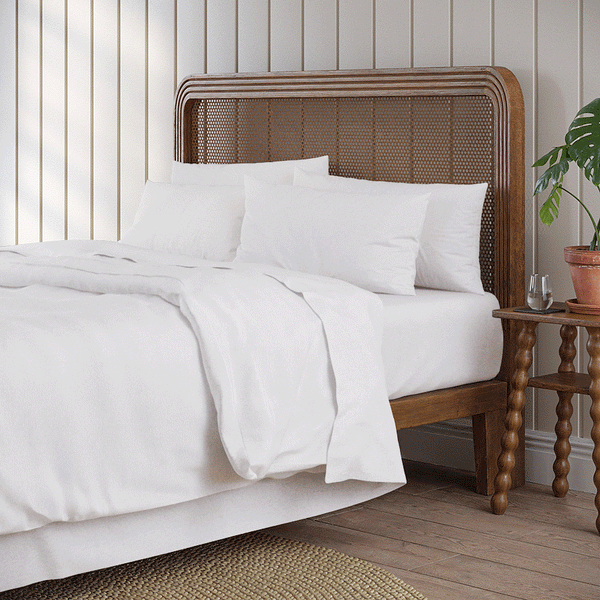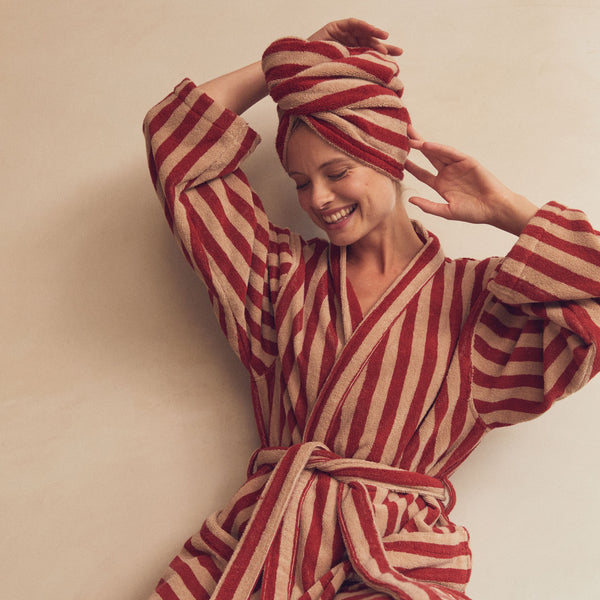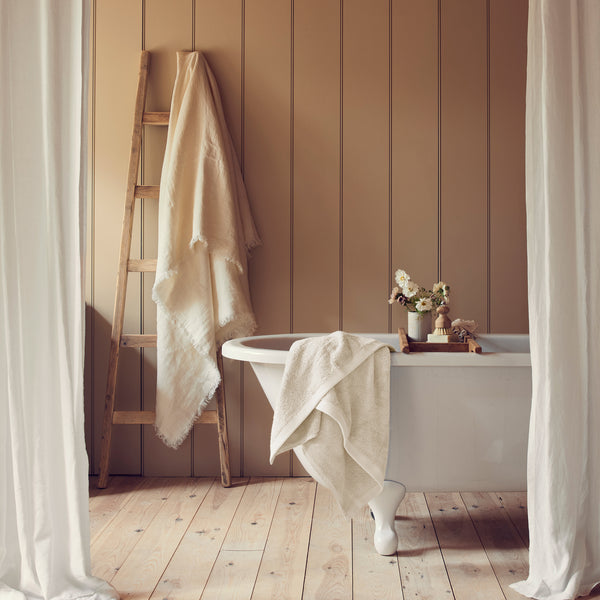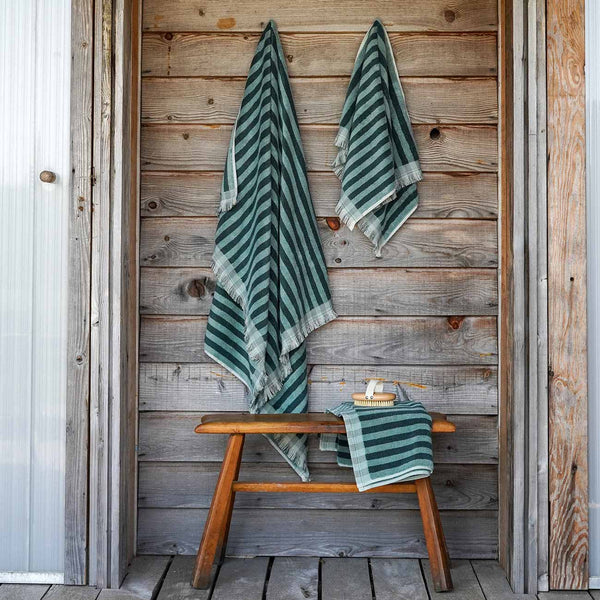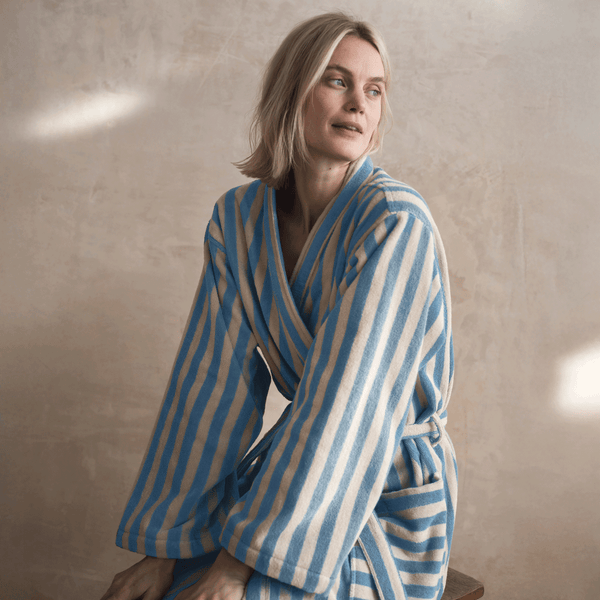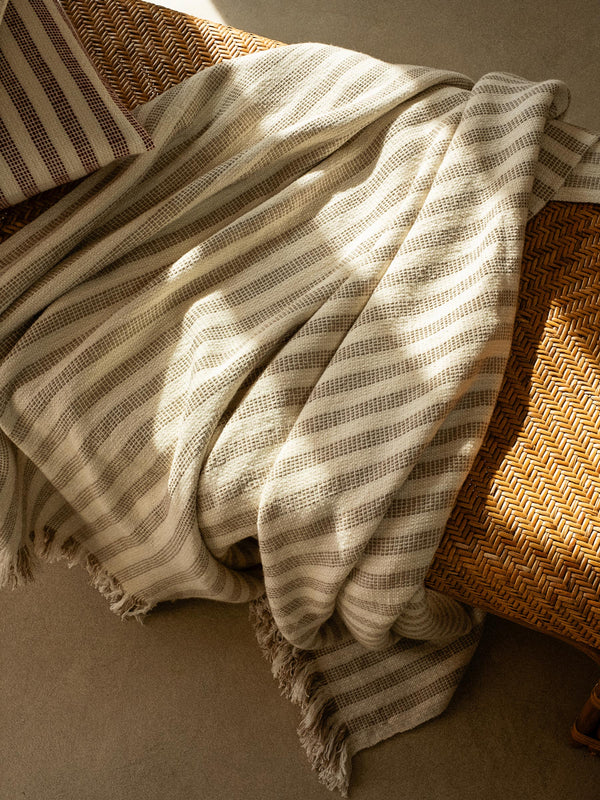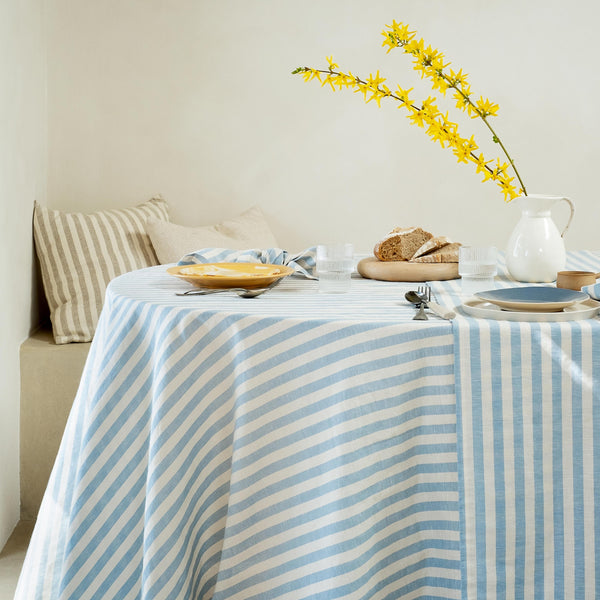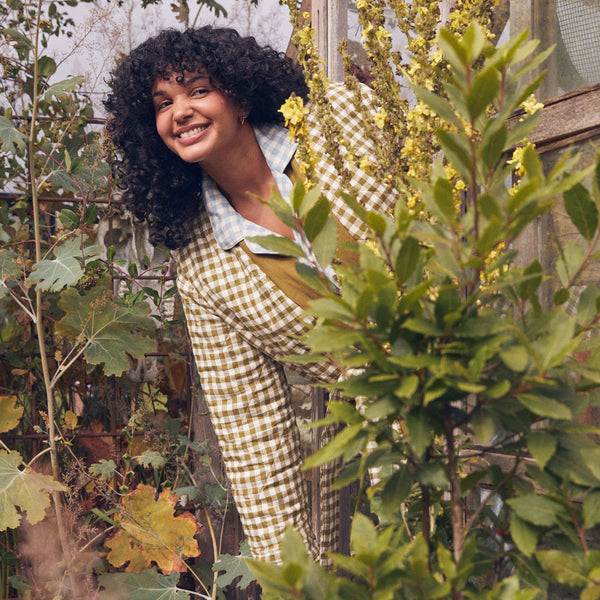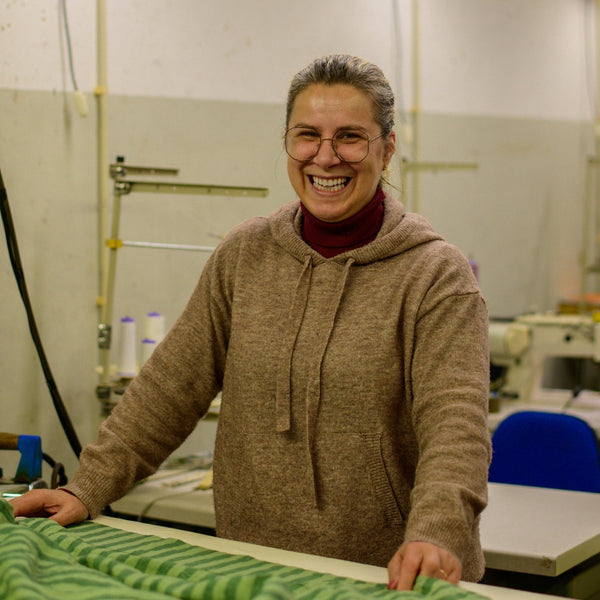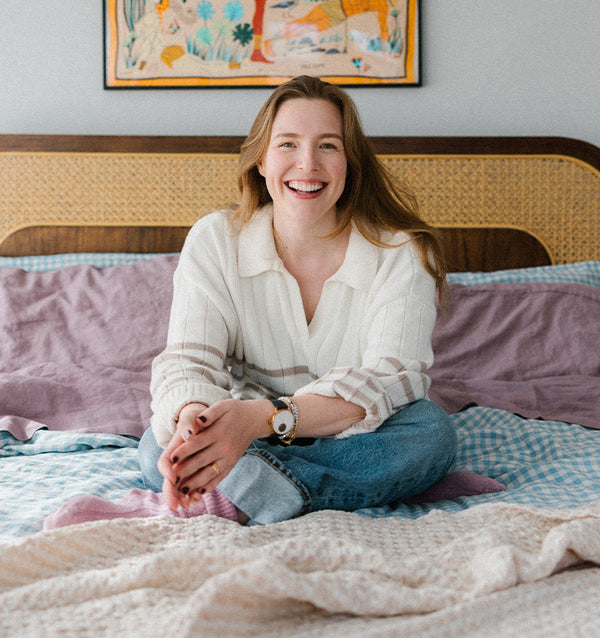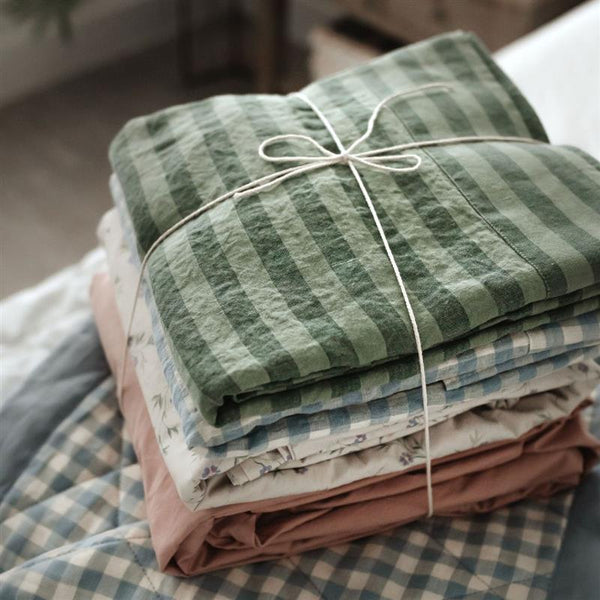When it comes to bedding, few fabrics exude the same level of understated elegance as linen. It’s luxurious yet low-maintenance, lightweight yet durable, and is often seen as the superior choice for styling a bedroom. But if you’ve ever compared linen sheets to cotton or synthetic alternatives, you might be left thinking: why are linen sheets so expensive?
Here, we’ll shed light on some of the reasons why linen bedding comes at a higher price tag and why more and more people are choosing to invest in top-quality materials for their bed sheets. After all, we spend a third of our lives in bed, so going by Girl Math, it’s the most cost-effective choice for getting a good night’s sleep!
Linen is labor-intensive
Linen is made from the fibers of the flax plant, which is notoriously laborious to harvest. The linen fibers are hidden inside the flax stalks, so extracting them is a longer and more labor-intensive process compared to picking cotton.

Left: Laurel Green Plaid Linen Flat Sheet; Right : Natural Plaid Linen Bundle
Much of the harvesting still happens by hand or using specialized tools, with growers carefully pulling the plants up by the root to keep the fibers intact. A lot of work goes into producing linen, even before it can be transformed into useable threads.
Production is limited
While cotton is grown worldwide, flax is grown and harvested almost exclusively in Europe, where the mild and relatively wet, humid climate is handy for once! These conditions, combined with Europe’s mineral-rich silty soil and generations of expertise, means the best quality of flax comes from Europe – with 85% of the world’s flax grown in France, Belgium and the Netherlands.
Flax also grows best under traditional farming methods, where the crops are rotated, and fields are allowed to rest, making it a sustainable fabric choice. This all means that linen is grown more selectively, and production is limited, so it’s much rarer than other textiles.
Manufacturing is a lengthy process
Once the flax has been picked, there are countless different stages to tick off before it’s ready for weaving. The first step is ‘shooking’, where the harvested flax is tied up in bundles and left to dry out evenly for several weeks. Then comes ‘rippling’, when the flax seeds are removed for replanting, and later is the ‘hackling’ stage, where the flax is pulled through combs to make the fibers straight, clean and ready to spin.

Left: Taupe Plaid Linen Bundle; Right: Fern Green Linen Flat Sheet
Spinning involves twisting together the drawn-out fiber strands to form yarns and then winding the yarn onto a bobbin or spool. We use wet spun linen at Piglet, where the fibers are immersed in hot water to create a thin, smooth thread suitable for bedding. Last of all is weaving, the method of crossing the threads to create a roll of linen fabric. It’s a long process from start to finish!
Linen lasts longer than cotton
Linen is one of the most durable natural fabrics there is, and only improves with age. The fibers in linen are up to 12 times stronger than the fibers in cotton, and they also get softer with each wash. Linen sheets that have been well cared for can last up to three decades – much longer than synthetic alternatives! All this to say, linen bedding is often a worthwhile investment in the long run.
Linen has heaps of benefits
Linen’s long lifespan is just one of the many benefits that make buying linen sheets a worthwhile investment. One of the biggest draws is how good it looks and feels. Linen has a beautiful natural texture, and we encourage everyone to put away the iron and embrace the creases. We love this low-maintenance style, and each crumple just adds to its effortless charm!
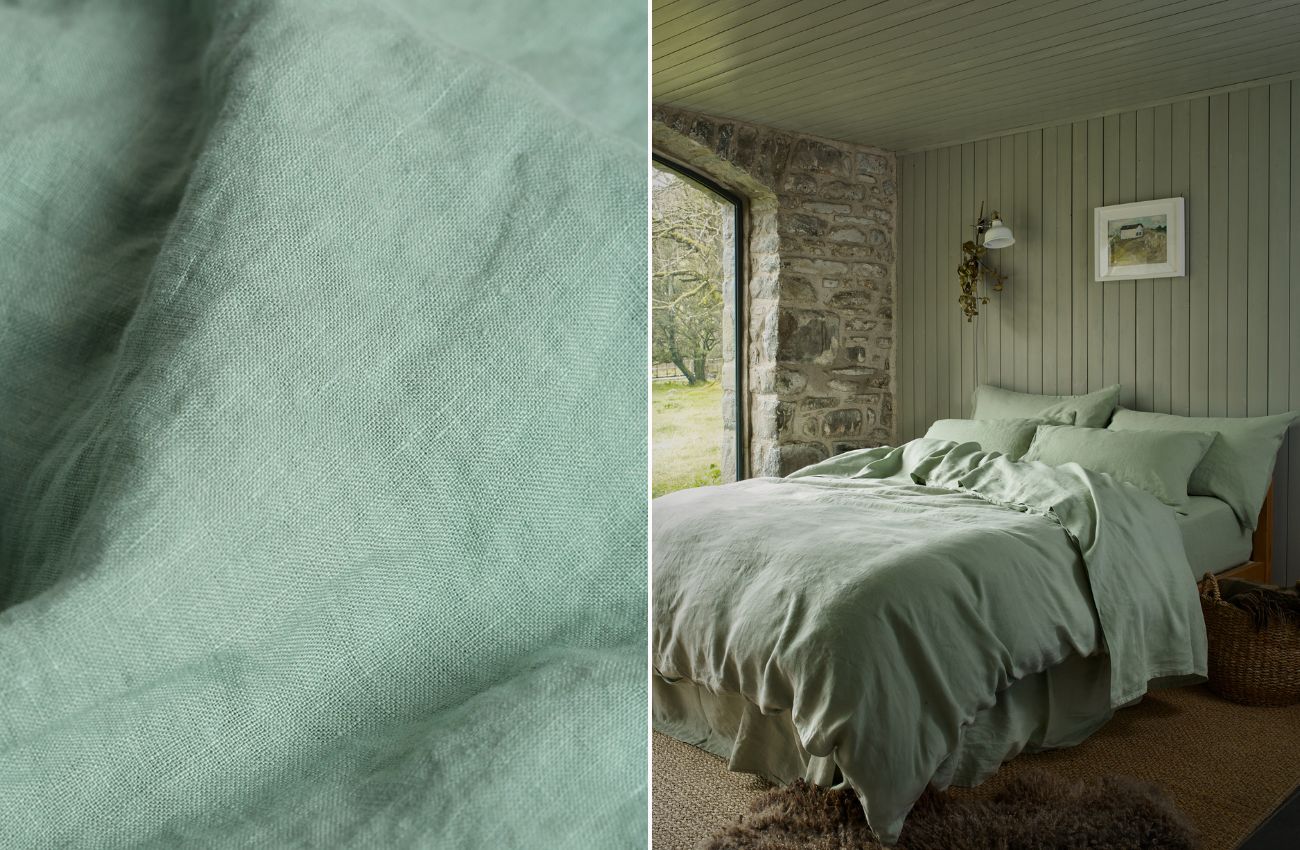
Left: Sage Green Linen Flat Sheet; Right: Sage Green Linen Bundle
As well as feeling soft to the touch, linen is also incredibly breathable, so it’s a perfect choice year-round. Its thermoregulating properties mean it will keep you cool in the summer and warm in the winter, too. If you’re looking for bedding that ticks all the right boxes (style, comfort, longevity, practicality and sustainability), you’ll be hard-pressed to find anything that rivals linen.
